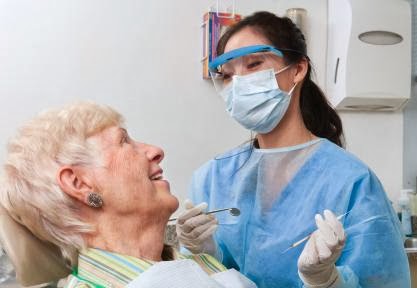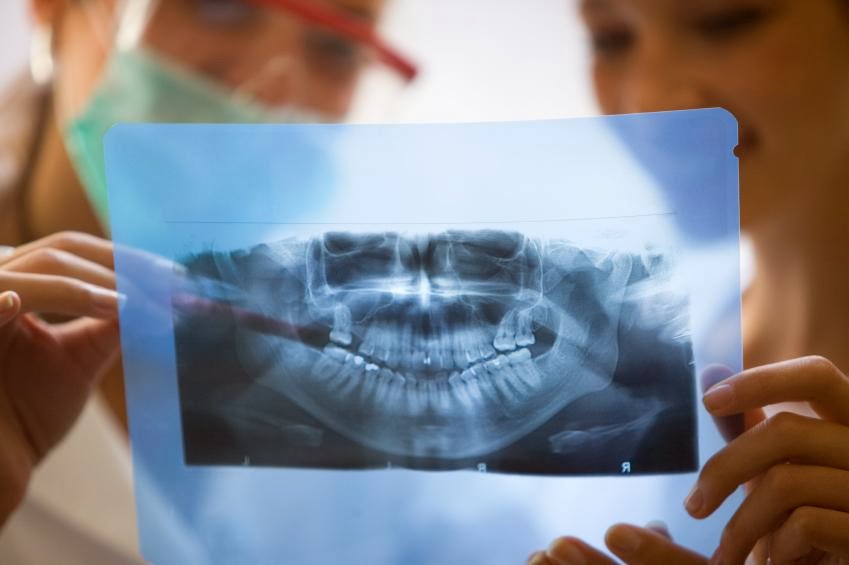This article explains how the more modern approaches to treating rampant tooth loss are able to undercut traditional dental implant techniques by tens of thousands of dollars.
Many New Jersey residents have avoided replacing missing teeth or have opted for more traditional technologies, such as partials or full removable dentures, because they are under the impression that dental implant treatment is simply prohibitively expensive. Well, with the innovation of newer, less expensive dental implant protocols, this simply isn’t the case any more! The cost of new teeth is not only inherently lower, but also with the help of the financing offered by most NJ dental implant practices, it’s affordable. Let’s take a look at how the “new kid on the block” – the “All-On-4®” dental implant technique – is changing smiles and bank balances.
The All-On-4 Compared with Traditional Dental Implant Protocols
You wouldn’t be incorrect in the assumption that having all of your teeth replaced with dental implants is incredibly expensive. It was. But in 1993, with the introduction of the more sophisticated All-On-4 technique for fixed oral rehabilitation, the cost of getting new teeth became substantially more affordable. Here’s how!
Fewer Implants Needed
 Traditional dental implant procedures could require as many as 10 implants per jaw in order to give patients a full set of new teeth again. The All-On-4®, as the name suggests, only requires four (see image below).
Traditional dental implant procedures could require as many as 10 implants per jaw in order to give patients a full set of new teeth again. The All-On-4®, as the name suggests, only requires four (see image below).
Each implant represents an investment in the region of $2,000 to $3,000, so by cutting down on the number of implants required, the All-On-4® already affords patients massive savings on the cost of new teeth. But we’re only getting started...
Only One Surgery in Most Cases
In order to place as many as 10 implants per jaw (20 in total if you’re undergoing full mouth reconstruction), the dental implant surgeons who treat NJ patients would frequently recommend that they come in for a series of surgeries, rather than one very long and complex procedure. Primarily because most patients who need their teeth replaced no longer have enough bone to place 10, 8, or many times even 6 dental implants. So many patients are told they need bone grafting before they can have their implants. This not only adds additional expense, discomfort and recovery periods, it also significantly delays the time until you can have new implanted supported teeth!
The All-On-4, however, only requires that four implants be placed, which can quite easily be done in a single surgical session, strategically utilizing the bone that is maintained. This saves patients a decent chunk of change on all the repeat bills that would be associated with multiple surgeries, including anesthesia, the surgeon’s time, hospital stay, surgical equipment and resources, etc. And the results are amazing!
Typically, No Bone Grafting
 Where many thousands of dollars are saved, however, is by the All-On-4’s ability to avoid the need for bone grafting surgery, which is highly invasive, painful and expensive. As stated, older dental implant protocols would frequently require more implants (so they thought) and hence bone grafting was often performed before a dental implant professional could even begin oral rehabilitation for a NJ patient.
Where many thousands of dollars are saved, however, is by the All-On-4’s ability to avoid the need for bone grafting surgery, which is highly invasive, painful and expensive. As stated, older dental implant protocols would frequently require more implants (so they thought) and hence bone grafting was often performed before a dental implant professional could even begin oral rehabilitation for a NJ patient.
This is because tooth loss and the diseases that cause it, i.e. gum disease, leads to the atrophy and destruction of the bone tissue necessary to support dental implants. But through the strategic placement and precise angulation of implants, the All-On-4 is almost always able to bypass bone grafting, saving patients a lengthy recovery period and the bill for a most unpleasant surgery.
A Final Note
For all these reasons, the All-On-4 technique comes with a much lesser price tag than traditional dental implant procedures and, better still, can give patients new teeth in as little as a single day! The direct and indirect savings are incredible and the outcomes: priceless.
 There are many approaches dentists can take to treating gum disease before they will consider giving New Jersey residents new teeth. Often a combination is used depending upon the extent of the disease and the damage it has already done. The first phase of treatment would be a thorough oral health assessment, followed by the recommendation of one or more of the following:
There are many approaches dentists can take to treating gum disease before they will consider giving New Jersey residents new teeth. Often a combination is used depending upon the extent of the disease and the damage it has already done. The first phase of treatment would be a thorough oral health assessment, followed by the recommendation of one or more of the following: Thankfully, if you have lost one or more of your teeth to gum disease, there is a suite of teeth replacement techniques available to help give you your smile back. Dental implants are typically the most highly recommended of these options because of their durability and better function and aesthetics.
Thankfully, if you have lost one or more of your teeth to gum disease, there is a suite of teeth replacement techniques available to help give you your smile back. Dental implants are typically the most highly recommended of these options because of their durability and better function and aesthetics. In the beginning stages, gum disease is known as gingivitis and can present with one or more of the following symptoms:
In the beginning stages, gum disease is known as gingivitis and can present with one or more of the following symptoms:
 Periodontal or gum disease is an advanced bacterial infection of the gums and the supporting structures of the teeth. It is caused by a lack of proper at-home and professional oral hygiene and comes hand-in-hand with risk factors such as:
Periodontal or gum disease is an advanced bacterial infection of the gums and the supporting structures of the teeth. It is caused by a lack of proper at-home and professional oral hygiene and comes hand-in-hand with risk factors such as: 
 Tobacco use is one of the leading causes of gum disease and gum disease is the leading cause of tooth loss. Smoking also compromises the ability of patients to fight off infection and heal after dental work is done, so your best chance of keeping all of your natural teeth is to kick the habit!
Tobacco use is one of the leading causes of gum disease and gum disease is the leading cause of tooth loss. Smoking also compromises the ability of patients to fight off infection and heal after dental work is done, so your best chance of keeping all of your natural teeth is to kick the habit! “Heavy drinking and drug abuse take as heavy a toll on the health of your teeth and gums as they do on your body,” explains a dental implants professional in New York. “Alcoholic beverages are almost always full of sugar and/or acid, which wears away at the dental enamel protecting your teeth. Alcohol also causes a condition known as ‘dry mouth’, which impedes the natural production of saliva. Saliva is a natural anti-bacterial, so people with frequent dry mouth tend to be more susceptible to tooth decay and gum disease. There are even some prescription medications that cause this condition so be sure to speak to your doctor about dosage or even a substitute if you experience this side effect.”
“Heavy drinking and drug abuse take as heavy a toll on the health of your teeth and gums as they do on your body,” explains a dental implants professional in New York. “Alcoholic beverages are almost always full of sugar and/or acid, which wears away at the dental enamel protecting your teeth. Alcohol also causes a condition known as ‘dry mouth’, which impedes the natural production of saliva. Saliva is a natural anti-bacterial, so people with frequent dry mouth tend to be more susceptible to tooth decay and gum disease. There are even some prescription medications that cause this condition so be sure to speak to your doctor about dosage or even a substitute if you experience this side effect.”